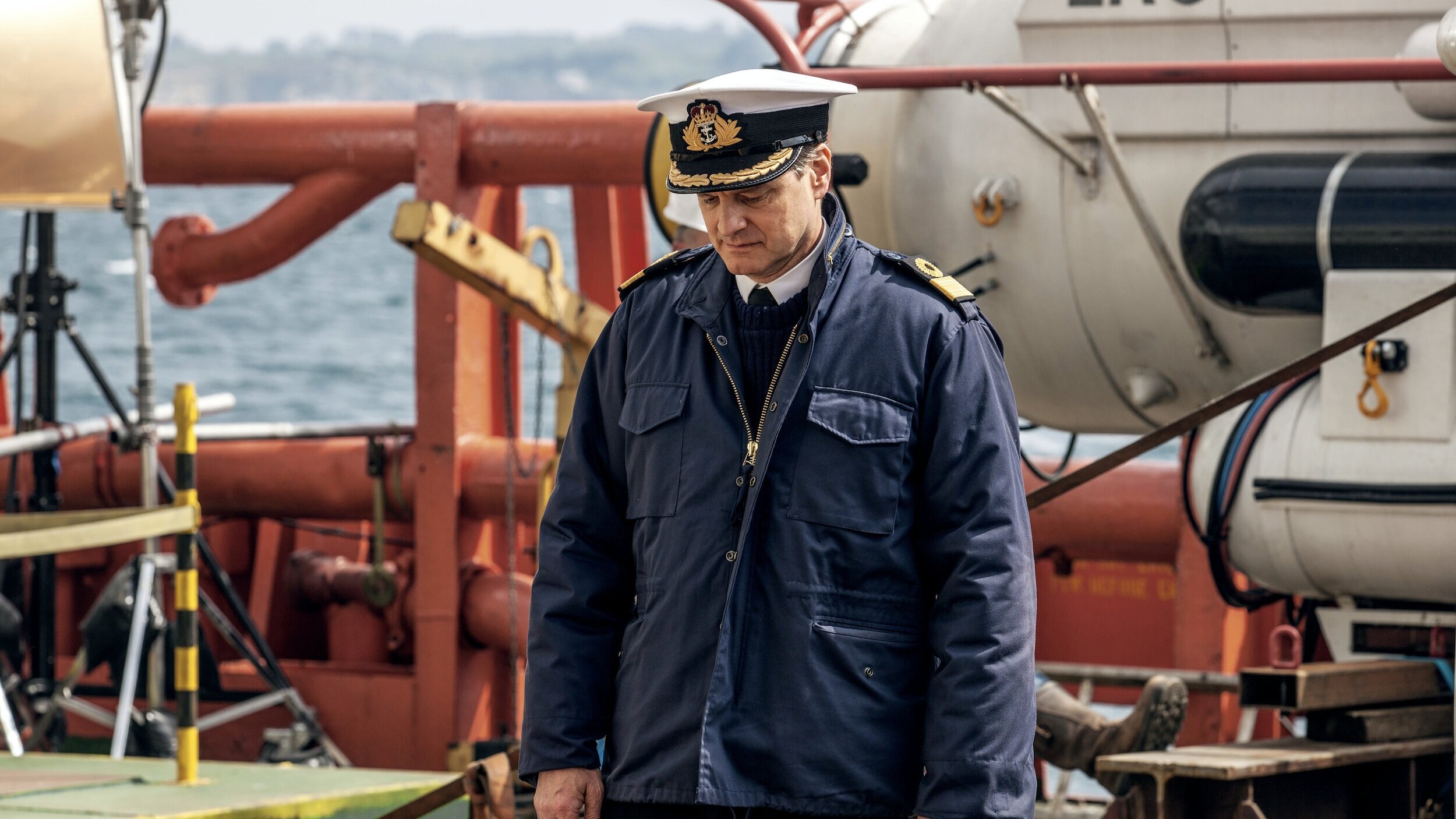Kursk: The Last Mission
The realities behind a narrative otherwise akin to many an adventure tale make this a distinctive work.
Colin Firth
The most unusual aspect of this film made in English by the Danish director Thomas Vinterberg lies in the fact that its single narrative operates on two distinct levels. On the one hand, this is a traditional tale of jeopardy, a rescue bid to save the lives of those who survive when an explosion sends a submarine to the seabed. Hardly remembered these days, Roy Baker’s Morning Departure (1950) told a comparable story of disaster at sea having first introduced us to captain and crew in their domestic lives. That is exactly the pattern here and Vinterberg does a confident job with it. At 117 minutes, the film may be a shade drawn out, but its portrait of a rescue mission is well mounted and features a talented cast. Matthias Schoenaerts is the captain here reuniting with Vinterberg following the remake of Far from the Madding Crowd (2015) which brought the director into English language cinema and Léa Seydoux does well too - her role being that of the captain’s wife.
Judged simply as a drama set at sea, this is well handled but is somewhat undermined by the fact that most of the characters are Russians who, in an atmospheric work such as this, lose much of their credibility by speaking in English. Schoenaerts and Seydoux doubtless do this for themselves but many of the supporting cast are presumably dubbed, and this only ceases to be a relevant factor when we have scenes featuring Royal Navy officers including Commodore David Russell played by Colin Firth. This is something which will disturb some audiences more than others, yet I can’t help but regard it as a limitation. Nevertheless, there is compensation in the generally high level of professionalism on display with Alexandre Desplat providing a suitable music score and the veteran Anthony Dod Mantle in charge of photography and embracing the ‘Scope format for the main action but adopting a more intimate ratio for the home scenes seen at the start and at the close.
A real-life incident not far removed from what was depicted in Morning Departure almost led to a cancellation of its release but the film was fictional. In contrast to that, even if it is to some extent a fictionalised version, Kursk is, of course, based on fact. The Kursk was a Russian nuclear-powered submarine which went down in the Barents Sea in 2000 during a major naval exercise. In this film, fresh names have been given to the main characters and no mention is made of the fact that the Russian President who came under fire at the time was one Vladimir Putin. Despite that, the basic facts as presented here appear to be correct. Consequently, the portrayal of Russian inefficiency, the failure to keep the crew’s families informed and the downright false information put out comes across in such a way that it makes Kursk: The Last Mission a political film and one which, having at its heart the way in which nationalist concerns scuppered the international help that was offered, also carries a message against going it alone. On both of its levels this is a film that can be accused of compromise (the Russians speaking in English; the avoidance of any direct mention of Putin), but it is a work of some interest for all that.
MANSEL STIMPSON
Cast: Matthias Schoenaerts, Léa Seydoux, Colin Firth, Peter Simonischek, August Diehl, Artemiy Spiridonov, Pernilla August, Magnus Millang, Joel Basman, Eva Van Der Gucht, Pit Bukowski, Katrine Greis-Rosenthal, Matthias Schweighöfer, Chris Pascal, Kristof Coenen, Max Von Sydow.
Dir Thomas Vinterberg, Pro Ariel Zeitoun, Screenplay Robert Robat, based on the book A Time to Die by Robert Moore, Ph Anthony Dod Mantle, Pro Des Thierry Flamand, Ed Valdis Óskarsdóttir, Music Alexandre Desplat, Costumes Catherine Marchand.
Belga Productions/VIA EST/OCS/Screen Flanders-Signature Entertainment.
117 mins. Belgium/Luxembourg. 2018. Rel: 12 July 2019. Cert. 12A.


